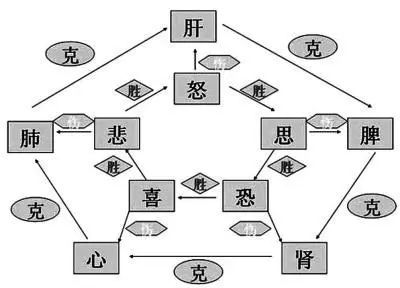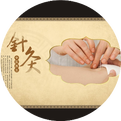
What are the ‘Seven Emotions and Six Desires’ in Traditional Chinese Medicine? In Traditional Chinese Medicine (TCM), the ‘Seven Emotions’ refer to the emotional states of joy, anger, worry, contemplation, sadness, fear, and shock. These seven emotional states, when excessively stimulated, can lead to an imbalance of yin and yang, and disrupt the flow of qi and blood, resulting in various diseases. TCM posits that these emotional states should be managed appropriately. If not, such as experiencing extreme joy or sorrow, or excessive fear, it can lead to an imbalance of yin and yang, and disrupt the flow of qi and blood, causing mental disturbances that manifest physically as various illnesses. What are the Six Desires? The concept of ‘Six Desires’ was first introduced in the “Lüshi Chunqiu” (The Annals of Lü Buwei), stating: “The so-called full life is when all six desires are satisfied appropriately.” So what exactly are the Six Desires? The Eastern Han philosopher Gao You commented on this: “The Six Desires are life, death, ears, eyes, mouth, and nose.” Thus, the Six Desires broadly refer to human physiological needs or desires. To survive, one fears death and seeks to live a rich and colorful life, thus the mouth desires to eat, the tongue to taste, the eyes to see, the ears to hear, and the nose to smell. These desires are innate and do not require teaching. Later, these were summarized as ‘seeing desire, hearing desire, smelling desire, tasting desire, touching desire, and mental desire.’ The Seven Emotions are: joy, anger, worry, contemplation, sadness, fear, and shock. The Six Desires are: ears, eyes, mouth, nose, body, and mind. Excessive stimulation of these seven emotional states can lead to an imbalance of yin and yang, and disrupt the flow of qi and blood, resulting in various diseases. TCM believes that these emotional states should be managed appropriately. If not, such as experiencing extreme joy or sorrow, or excessive fear, it can lead to an imbalance of yin and yang, and disrupt the flow of qi and blood, causing mental disturbances that manifest physically as various illnesses. The Relationship Between the Seven Emotions and Six Desires and the Five Organs: 1. Joy Harms the Heart Joy can promote the circulation of qi and blood, relax the muscles, and aid in recovering from fatigue. However, excessive joy can damage the heart qi. As stated in the “Huainanzi: On the Original Way”: “Excessive joy leads to negligence.” Excessive yang can cause the heart qi to move erratically, leading to scattered spirit and extreme evil qi, resulting in palpitations, insomnia, forgetfulness, and even dementia. The story of Fan Jin, who became mad due to mixed feelings of joy and sorrow in his old age, is a typical case of joy harming the heart. 2. Anger Harms the Liver Anger is a common emotion; it causes qi to rise, harming the liver, leading to feelings of gloom, irritability, dizziness, and is also a significant cause of hypertension, coronary heart disease, and gastric ulcers. 3. Worry Harms the Lungs Worry is closely related to the lungs; extreme worry can harm the lungs, leading to dry cough, shortness of breath, hemoptysis, hoarseness, and changes in respiratory rate. Lin Daiyu from “Dream of the Red Chamber,” who is sentimental and melancholic, is a good example of someone harmed by worry. 4. Contemplation Harms the Spleen TCM states: “Contemplation leads to qi stagnation.” Excessive contemplation can disrupt the nervous system’s function, reduce digestive fluid secretion, and lead to loss of appetite, sluggishness, fatigue, and feelings of depression. 5. Sadness Affects the Lungs In TCM, sadness and worry are both associated with the lungs. Sadness is an extreme form of worry. Excessive sadness can deplete lung qi, affecting the heart, liver, and spleen, leading to symptoms such as shortness of breath, chest tightness, fatigue, and lethargy. It can also affect the liver, causing mental confusion, and even lead to muscle spasms and discomfort in the ribs. Excessive sadness can also injure the heart qi, leading to palpitations and mental disorientation. If it affects the spleen, it can cause stagnation of stomach qi, leading to abdominal distension and muscle atrophy in the limbs. In the cycle of the five elements, the lungs belong to metal, and fire overcomes metal; thus, sadness affects the lungs, while joy can counteract excessive sadness. 6. Fear Harms the Kidneys Fear can disrupt the nervous system, leading to symptoms such as tinnitus, deafness, dizziness, impotence, and can even be life-threatening. The saying “scared to death” reflects this principle.

In life, the changes in emotions such as joy, anger, sorrow, and happiness are intertwined with our daily experiences. One should remain calm and composed when facing complex situations. After an event, do not dwell on it for too long, as it can lead to self-inflicted distress. Fostering an optimistic attitude and enhancing psychological resilience is essential. One should be broad-minded and maintain a positive outlook. It is important to be tranquil and content, viewing life’s joys and sorrows, honors and disgraces, labors and gains as fleeting moments. Ultimately, one should seek peace of mind, maintaining inner tranquility for longevity. 7. Shock Shock refers to the emotional experience of tension and fear triggered by unexpected events. The key to shock is the suddenness of the unexpected event. Shock often arises from external stimuli but can coexist with other emotional experiences, creating a complex emotional state. For example, the joy of an anticipated event can lead to shock, while encountering danger can cause fear, and facing unforeseen circumstances can lead to panic. Shock differs from fear in that it is a more straightforward experience, primarily characterized by fear and anxiety, often accompanied by a desire to escape, while shock can be accompanied by joy or fear. Emotional Disturbances Caused by the Seven Emotions The seven emotions can cause diseases by affecting the internal organs, primarily influencing the qi dynamics of the organs, leading to abnormal qi movement and blood circulation. Different emotional stimuli have varying effects on qi dynamics. The patterns of how the seven emotions affect the qi dynamics of the organs are summarized in the “Suwen”: anger causes qi to rise, joy causes qi to relax, sadness causes qi to dissipate, fear causes qi to descend… shock causes qi to become chaotic… contemplation causes qi to stagnate.Anger causing qi to rise means that excessive anger can cause liver qi to rebel upwards, leading to blood flowing against its natural course. Clinically, this can manifest as qi rebellion, facial redness, or even vomiting blood, and in severe cases, fainting. Joy causing qi to relax includes both alleviating tension and dispersing heart qi. Under normal circumstances, joy can ease tension, allowing for smooth circulation of qi and blood, and a pleasant mood. The “Suwen” states: “Joy causes qi to harmonize and the spirit to be at ease, thus qi relaxes.” However, excessive joy can scatter heart qi, leading to an inability to concentrate, and in severe cases, mental disarray. Sadness causing qi to dissipate means that excessive sadness can lead to lung qi depression, resulting in a lack of will and depletion of lung qi. Fear causing qi to descend means that excessive fear can lead to instability of kidney qi, causing qi to leak downwards, clinically manifesting as incontinence; or unresolved fear can harm essence, leading to symptoms such as bone pain, weakness, and nocturnal emissions. Shock causing qi to become chaotic means that sudden shock can leave the heart without support, the spirit without a home, and the mind without focus, leading to panic and confusion. Contemplation causing qi to stagnate means that excessive worry can harm the spirit and the spleen, leading to qi stagnation. The ancients believed that “contemplation” originates from the spleen and manifests in the heart, thus excessive worry not only depletes the heart but also affects spleen qi. Excessive contemplation can harm both the heart and spleen, leading to symptoms such as palpitations, forgetfulness, insomnia, and vivid dreams; qi stagnation can obstruct the spleen’s function, leading to poor digestion and symptoms such as loss of appetite, abdominal distension, and loose stools. The Seven Emotions represent TCM’s understanding of basic human emotions. Beyond the seven emotions, love and hate, pride and shyness, dignity and contempt are also fundamental emotional expressions of humanity.
Recommended Reading:
1. Acupoint Search 2. Acupoint Chart 3. Disease Search
4. Aiyisheng Automatic Abdominal Massage Device, Gua Sha Device, Beauty Device, Aiyisheng Warm Sitting Device, Warm Foot Device, Eye and Nose Moxibustion
Good Articles Recommended: How to Adjust Numbness in Fingers? Try These Three Acupoints
Support Health, Like + View
